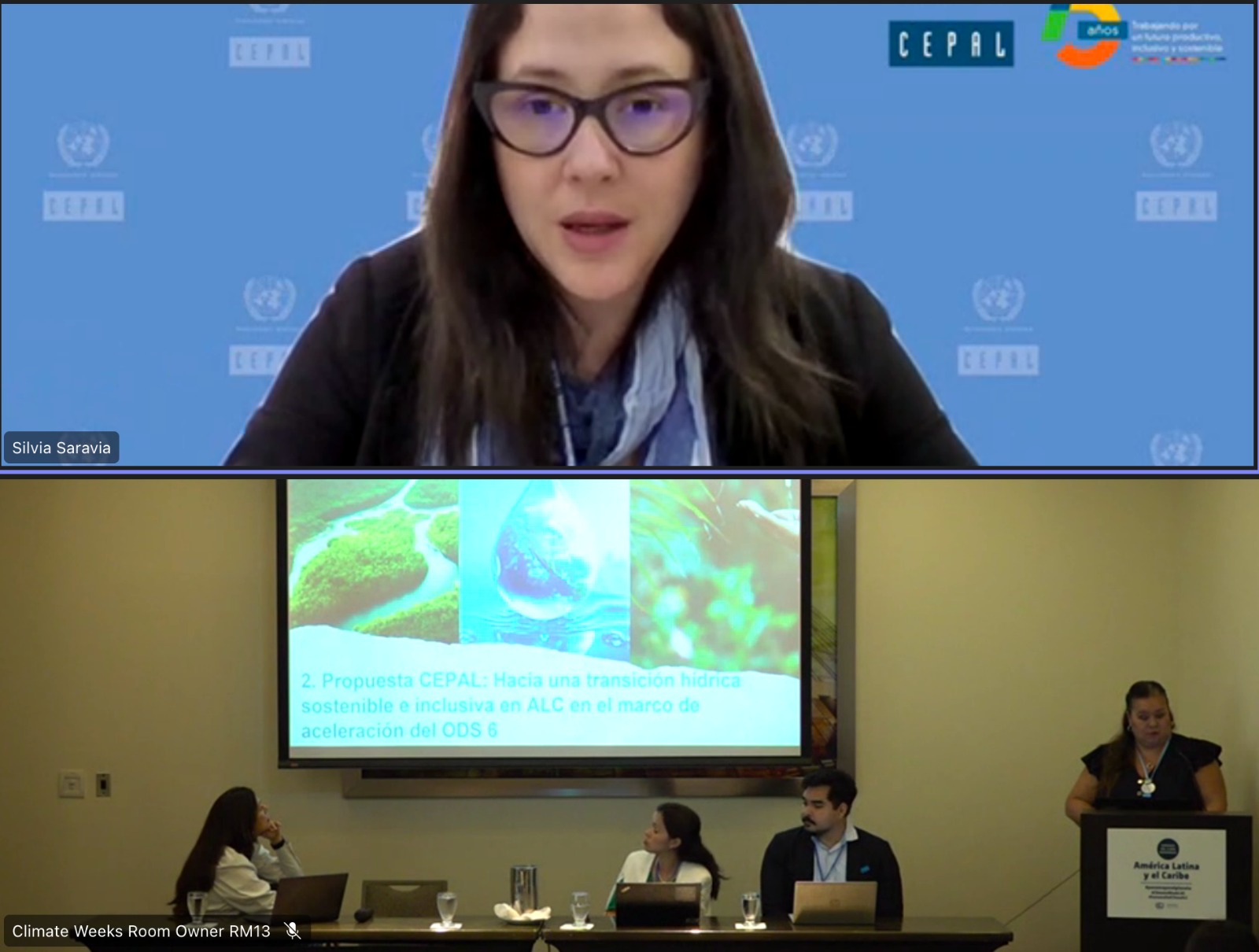ECLAC organizes in collaboration with UNICEF and SIWI parallel event titled 'Water and Sanitation in the Context of Climate Change' during the Climate Week in Panama
Work area(s)
Topic(s)
During the Latin America and the Caribbean Climate Week 2023 (LACCW 2023), ECLAC, in collaboration with UNICEF and SIWI, organized the parallel event titled "Water and Sanitation in the Context of Climate Change," with the motto of ensuring the availability and sustainable management of water and sanitation for the most vulnerable in the context of climate change. The event highlighted the challenges related to water and sanitation in the context of climate change, particularly the vulnerabilities of populations in Latin America and the Caribbean (LAC). Prominent experts contributed from their various fields of expertise to gain a comprehensive understanding of the current situation in the region.

LACCW 2023, held in Panama City from October 23 to 27, is one of the four Regional Climate Weeks held this year to build momentum leading up to the United Nations Climate Change Conference COP 28 in Dubai and the conclusion of the first Global Review, designed to chart the path to fulfilling the key goals of the Paris Agreement. Throughout the week, several high-level sessions, panel discussions, parallel events, and action hubs were organized to explore topics spanning from renewable energy, urban planning, food systems, to water-related issues.
In this context, on October 27, ECLAC organized and participated in the parallel event titled "Water and Sanitation in the Context of Climate Change." The event brought together renowned experts, organizations, and stakeholders, each providing their perspective on the critical issue of water and sanitation in the face of climate change threats. It began with opening remarks centered on the Regional Water Agenda, presented by the Development Bank of Latin America and the Caribbean (CAF), which, as the leading entity of the water coalition, set the stage for the in-depth discussions that followed.
Dr. Silvia L. Saravia Matus, Economic Affairs Officer responsible for Water Affairs at ECLAC, emphasized the challenges and opportunities that lie ahead for the Water, Sanitation, and Hygiene (WASH) sector, particularly considering climate uncertainties. Her session addressed many relevant points, such as the multifaceted issues of water scarcity and water quality degradation. Additionally, she provided a comprehensive assessment of progress toward achieving Sustainable Development Goal 6 (SDG 6), while highlighting the potential obstacles that climate change could introduce in achieving this goal.
Ms. Jovana Garzón Lasso, Program Manager at the Stockholm International Water Institute (SIWI) for Latin America and the Caribbean, focused on the vital areas that require attention to accelerate the achievement of SDGs 6 and 13 (centered on climate action) in the region. She also discussed the institution's strategies to assist countries in strengthening WASH services, especially in the context of unpredictable climate.
Furthermore, Ms. Sunny Guidotti added UNICEF's perspective to the discussion, mentioning the close relationship between climate change, water, sanitation, and hygiene (WASH), and the importance of evolving and adapting services to ensure effective, safe, and resilient supply for the most vulnerable segments of the population. She also shared insights on the role of entities during climate emergencies and presented a real case study from Honduras.
The event concluded with a question-and-answer session that allowed participants to interact directly with the presenters, clarify doubts, and gain a deeper understanding of the topics discussed. It also contributed to a better understanding of the current context and efforts towards resilient and sustainable solutions in relation to climate change.
Country(ies)
-
Panama